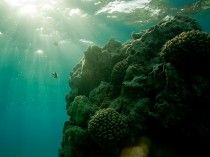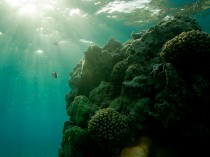Coastal co-operation can reverse marine decline
Damage to marine and coastal ecosystems could be reversed through more involvement between coastal communities and stakeholders, says a United Nations Environment Programme (UNEP) guide.

 Damage to marine and coastal ecosystems could be reversed through more involvement between coastal communities and stakeholders, says the United Nations Environment Programme (UNEP).
Damage to marine and coastal ecosystems could be reversed through more involvement between coastal communities and stakeholders, says the United Nations Environment Programme (UNEP).
A new guide, published today for World Oceans Day 2011 (8 June), stresses the importance of groups working together where they have a stake in the coastline to mitigate the harm caused along the coast by pollution and over-fishing.
Coastlines are a complex ecosystem affected by the activities and inputs of different interest groups.
Statistics on the UNEP website claim that “37 per cent of the world’s population lives within 100 km of the coast, at a population density twice the global average.”
The majority of sea pollution is caused by waste and pollutant run-off from cities, industrial activities and agriculture. Ecosystems and the animals that live in them are under significant threat from these human activities according to the UNEP Regional Seas Programme website.
Recent decades have seen significant damage to marine coral reefs. Ten per cent of the world’s reefs may already have been degraded beyond recovery and 30 per cent are in decline.
Marine mammals are affected by coastal development as well as by the dredging and filling of coastal wetlands by industry and farmers. Sea turtles and marine mammals such as seals, manatees and small whales are at particular risk.
UNEP Executive Director Achim Steiner said: “We need to move from sectoral marine and coastal management to a joined approach that marries seemingly competing interests. This is central to a response to transform decades of overfishing, pollution and unplanned urban development.”
The UNEP guide says that an “ecosystem-based management” approach should be adopted by policy-makers and planners at local, regional and national government level.
The study emphasises the importance of managing the activities and interactions of people and services related to the coastal area.
California is used as an example of ecosystem-based management in action, in the guide. There, a group of coastal stakeholders including NGOs, state organisations and other groups developed an “ocean atlas”, mapping the full range of economic and recreational users of Californian water and where their interests overlap.
The UNEP guide says that its “holistic” and “integrated” approach sets it apart from pollution monitoring, fisheries and ecosystem management carried out by marine managers elsewhere in the world.
Where neighbouring countries are involved, achieving co-operation may be more difficult and UNEP hopes that its Regional Seas Programme will be able to engineer co-operation between groups over shared resources.
In a speech about World Oceans Day, UN Secretary General Ban Ki-Moon said: “Human activities are taking a terrible toll on the world’s oceans and seas. [We have an] individual and collective duty to protect the marine environment and carefully manage its resources.”
“Safe, healthy and productive seas and oceans are integral to human well-being, economic security and sustainable development.”
Image: Flickr | USFWS Pacific






